You are currently browsing the category archive for the ‘EU research’ category.

UK Election Day : 4 June 2009
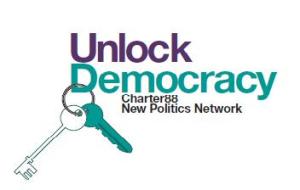
About the author : Emily Robinson is Research and Publications Officer at Unlock Democracy and has previously worked at the New Local Government Network and the Institute for Public Policy Research. Her publications include My Election: A Voters’ Eye View of the 2007 Scottish Elections (with Patrick Casey, Unlock Democracy, forthcoming); General Election 2005: What the Voters Saw (with Justin Fisher, New Politics Network, 2005); Living with Regions: Making Multi-level Governance Work (NLGN, 2004) and The Benefits of Community Engagement (with Ben Rogers, ippr/Home Office, 2004). Emily is also the series editor of New Politics, Unlock Democracy’s regular discussion paper.
Source: UnlockDemocracy.org [edited]
Author: Emily Robinson
British Citizens and the European Union : Findings from a deliberative process
Britain’s relationship with the European Union excites a great deal of emotion. It is a staple of the tabloid press and one of the few political topics that is regularly discussed in pubs and offices. However, this does not necessarily mean that we know much about the EU or how it works.
British citizens are less confident that they know about the EU’s policies and institutions than the people in any other member state, except Hungary. In a Eurobarometer poll conducted in Autumn 2005, only 46% of British respondents were aware of the UK’s Presidency of the EU and MORI research found that 82% of those
polled do not feel they have enough information to make an informed decision on whether or not to adopt the Constitutional Treaty.
Lack of knowledge leaves us vulnerable to misinformation and myth-creation. This is worrying, not only because it leads to frustration and alienation but also because political parties shape their policies on Europe according to what they believe the public will accept. If the public do not have enough information to engage in a serious debate about the future of the European Union and our relationship to it, then it is likely that our policies will be unsound.
This project was designed to gauge informed public opinion on Europe. We wanted to find out what citizens would think when all the information had been presented to them.
…
The [research] highlighted a sense of unease about the way that the European Union is governed. Even the most Europhilic panellists complained about a lack of democracy, transparency and accountability.
The panellists felt very strongly that, as the only directly elected body, the European Parliament should be at the centre of European decision making. It was also suggested that the Commission should be made in some way accountable to the Parliament. Important steps to enhance the transparency and accountability of European procedures could be taken at the national level. For instance, it was suggested that British members of the Council of Ministers should have to report back to Parliament and that the House of Commons Select Committee on Europe should meet in public. We think these are both important proposals, which would place Europe more clearly in our existing democratic framework and create a new layer of accountability.
Another problem identified by many of the panellists was a lack of reliable accessible information about the EU and its activities. This was seen to be partly a problem with the information made available by the European institutions, but also the result of a lack of media interest in the workings of the EU. It was suggested that the broadcast and print media should cover the European Parliament in the same way as Westminster.
Download the full report here: http://www.unlockdemocracy.org.uk/wp-content/uploads/2007/12/british-citizens-and-the-european-union.pdf

Users can look up MEPs' individual voting records or access voting data according to nationality or political group affiliation.
Source: EurActiv [edited]
Citizens will be able to track the voting records of their MEPs ahead of next elections following the launch of a new website making such details easily accessible to the public. VoteWatch.eu was developed by political scientists from the London School of Economics (LSE) and the Free University of Brussels (ULB). Those involved include Sara Hagemann of the European Policy Centre, a Brussels-based think-tank, LSE professor Simon Hix, Doru Frantescu of the Qvorum Institute in Bucharest and Adbul G. Noury, associate professor of economics at ULB.
VoteWatch.eu is described as a “not-for-profit organisation” supported by the Open Society Institute, an NGO, Burson Marsteller, a consultancy, and Electionmall.com. The VoteWatch.eu project – which seeks to boost the transparency of EU decision-making and improve the quality of debate – collates publicly available attendance, voting and activity data on MEPs on a single, searchable portal.
The project “provides detailed information about parliamentarians’ voting records and formal political activities – from committee work to parliamentary reports – and includes easy-to-access information on the political coalitions that are formed around policy issues,” reads a statement on the website. “We’re not campaign-oriented, party-political, or receiving any money from the EU institutions or government organisations,” explained project leader Sara Hagemann of the European Policy Centre (EPC), a Brussels-based think-tank. “All the info is publicly available, but it’s difficult to find. We’ve collated it all,” she said.
Users can look up MEPs’ individual voting records or access voting data according to nationality or political group affiliation. The search tool allows users to identify whether an MEP voted with or against his or her government or political group’s line on a particular issue.
“Cohesion scores” displayed alongside the results allow for comparisons with members’ previous votes on similar issues or alignment with the party line, allowing users to track how the positions of their MEP or a political group have evolved over the years. “There are shifting coalitions in the European Parliament, just like the shifting coalitions in the US Congress,” said Simon Hix of the London School of Economics, another of the site’s developers.
‘No naming and shaming’
The information on VoteWatch.eu is purely objective. “This is not a naming-and-shaming site, and I think it’ll be difficult to use the site for this. It is not subject to any editorial manipulation. It means people can now use the information that the Parliament is providing. Before, this was not the case.” One drawback of the website is that it can only track roll-call votes, and not electronic or show-of-hands ones. “But all the most important votes, and all those that involve lobbying, are roll-call,” Hix said.
Site ‘must not hide’ EU institutions’ failings
But EU Ombudsman P. Nikiforos Diamandouros warned that the initiative must not be allowed to hide the European Parliament’s own communication troubles, and especially not those of the Council. “Citizens will not be satisfied until all legislative deliberation is made public,” said Diamandouros, expressing his belief that with the upcoming Swedish EU Presidency committed to improving transparency, the issue is “likely to acquire even more importance in the years to come”. .
Hailing the launch of the tool, EU Ombudsman P. Nikiforos Diamandouros said the best way of increasing trust in the Union was to improve transparency of decision-making. “Lack of transparency in the legislative process, alongside difficulties in accessing documents, is by far the most common complaint I hear from citizens,” he said. “Transparency did not feature highly on the EU agenda until recently, but it’s at the forefront now. The Access to Documents Regulation was a key landmark, because it made openness the rule and secrecy the exception. But the situation is still far from perfect,” Diamandouros said.
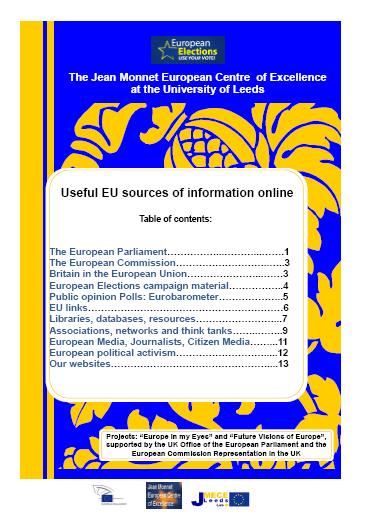
EU election and voting links released by JMECE Lab
JMECE Lab presents a selection of online sources aiming to share European Elections 2009 campaing onlne links and other useful EU websites. To access the publication, click here or download it from here http://www.box.net/shared/jbng3vkpk8
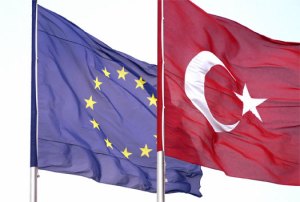
Sarkozy proposed to create a large joint economic area, noting that a similar concept might work to bind Russia closer to the EU.
Source: EuroActiv [edited]
Turkish Foreign Minister Ahmet Davutoglu has strongly rejected German Chancellor Angela Merkel’s idea of a “privileged partnership” between the EU and Turkey, saying his country would not accept any alternative to full membership of the European Union.
Speaking at a gathering of young conservatives on 10 May, Merkel said it does not make sense for the EU to continuously expand if it leaves the Union unable to operate. She added that she would prefer Turkey to receive a privileged partnership from the EU, rather than full membership, echoing recent comments made by French President Nicolas Sarkozy at the launch of his EU election campaign (EurActiv 8/05/09).
At the same meeting, Sarkozy told German newspaper Bild am Sonntag: “We need a well-organised Europe […] That means we cannot expand without borders. We shouldn’t make any empty promises to Turkey.” As an alternative, Sarkozy proposed to create a large joint economic area, noting that a similar concept might work to bind Russia closer to the EU.
The Turkish press expressed widespread dismay at the statements, made by the two EU leaders during a young CDU (Christian-Democrats) activists’ event. The daily Milliyet wrote that “Merkel has officially shocked Turkey”. Before being elected president in May 2007, Sarkozy frequently spoke out against Turkey’s EU accession, but softened his stance after his election (EurActiv 28/08/07). In the case of Germany, Merkel’s unfavourable view of Ankara’s accession is tempered by the more positive attitude of her foreign minister and Social Democratic coalition partner Frank-Walter Steinmeier.
The French press, for its part, interpreted Merkel’s statements as a veiled attack on the UK Conservative party. “Those who refuse the Lisbon Treaty – which would allow us to work better and to take aboard new members – but who still talk about enlargement, we refuse to shake their hand,” the AFP agency quoted Merkel as saying.
The agency quotes an unidentified member of the French government as saying that Merkel was referring to the Conservative party led by David Cameron. The Eurosceptic tone adopted by the British Conservatives, who decided to leave the centre-right European People’s Party, is “worrying” Paris and Berlin, the source added.

Petition for the Prime Minister to inform all citizens and residents to vote in the European Elections on 4 June 09.
Source: Nath Henry
It is the Government’s duty to communicate the importance of these fast-approaching, and largely invisible, elections to all voters. The European Parliament is responsible with the Council of Ministers for passing legislation that affects us all. The Government is represented in the Council of Ministers. It is its job to inform us what it does and how important the European elections are for making the EU accountable to its citizens.
Thank you for adding your name online if you would like to support the petition.
Nath Henry
SIGN IT HERE: http://petitions.number10.gov.uk/Date4Europe/
European Health Insurance Card
Protection Of Cultural Heritage
Human rights throughout the world
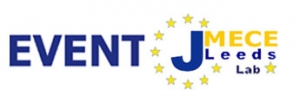
Conference theme: In June 2009 European citizens will elect a new European Parliament, some of them who joined the European Union only recently for the first time.
17 – 18 September 2009
The conference will be organised by the ECREA Political Communication section, the Centre for Digital Citizenship and the Jean Monnet European Centre of Excellence at the Institute of Communications Studies.
Conference theme: In June 2009 European citizens will elect a new European Parliament, some of them who joined the European Union only recently for the first time.
2009 will also see numerous national elections throughout Europe. The Political Communication section will take this important election year in Europe as an opportunity to revisit one of the key areas of political communication research – how democratic participation is shaped and transformed by processes of mediatisation and what consequences this has for the nature of contemporary citizenship.
The nature of democratic citizenship is presently undergoing fundamental changes, which are assumed to have far-reaching consequences for the way democracy works. The relationship between citizens and their elected representatives seems to be characterized by growing distance, mistrust and ignorance. Long gone are the days of an ideal (or idealized) Athenian polity where political engagement was regarded a virtue and daily life was permeated by political debate.
Instead, a growing number of citizens has withdrawn from politics and doesn’t even find it worth the while to follow the news or to cast their vote. Meanwhile, the enthusiasm that initially inspired the citizens of the new democracies in Eastern Europe has evaporated and we now see similar patterns of disenchantment in these countries like in their established counterparts. Media organisations and political actors have responded to these developments in various ways – so far without significant success. Turnout continues to drop, and news programmes, in particular current affairs programmes, are losing their audiences.
Are modern democracies, then, left without citizens, as Robert Entman suggested twenty years ago? The question is even more urgent with regard to the European Union, which for a long time has been largely ignored by its citizens, but is now at risk to be rejected altogether, as the recent No votes in the referenda in Ireland, France and the Netherlands demonstrate.
However, the situation might be more ambiguous and complex. While citizens are withdrawing from institutionalized politics and established channels of communication new arenas of participation and new forms of communicating political ideas have emerged, which for many – in particular the young – appear more meaningful and more trustworthy. In particular the Internet has opened up new spaces for democratic citizenship from the local to the global level that could not have been dreamed of twenty years ago.
The ECREA Political Communication sectional workshop aims to provide a forum to discuss these themes with scholars who are working on the changing nature of citizenship, political involvement and the media both in the European and the national context.
Call for Papers
We invite empirical as well as theoretical papers that contribute to understanding contemporary democratic citizenship and the role of the media, old and new, in shaping the way it is experienced and practiced. We are particularly interested in papers that address the following aspects:
* European citizenship: media and perceptions of Europe; Participation and vote choice in European elections and referenda.
* The ballot box and beyond: media and national electoral politics; non-institutionalised participation; non-voting and political disengagement.
* Communicating to citizens: Mediated and mediatised political messages; implications for political information and participation.
* Making sense of politics: citizens’ response to political information; information processing and civic knowledge.
* Conceptualizing citizenship (European, national): relationship between media and citizenship; lay understanding of citizenship.
Submission of contributions: Abstracts of not more than 500 words should be sent to ics-conferences@leeds.ac.uk, mentioning ‘Mediated citizenship’ in the subject line. Deadline: 15 May 2009 If you wish to propose a whole panel please get in touch with Dr. Katrin Voltmer at k.voltmer@leeds.ac.uk
Key note (Thursday afternoon) Prof. Peter Dahlgren – Lund University, Sweden: “Mediated Democracy and the Centrality of Civic Identities and Practices”
Please download registration form and send to ics-conferences@leeds.ac.uk
Contact: Dr. Katrin Voltmer (academic organiser) Houldsworth Building, Room 3.50 Institute of Communications Studies University of Leeds Leeds, LS2 9JT United Kingdom Email: k.voltmer@leeds.ac.uk Tel: +44-(0)113-3435829 Fax: +44-(0)113-3435808
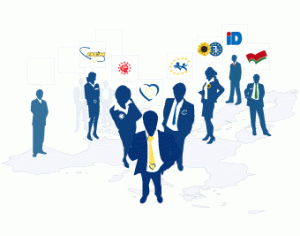
To what extent and in which areas can the Europarties’ campaigns be similar or different to national campaign styles?
By: Centre for European Studies
Academics should not only concentrate on analyzing and explaining the elections post-factum – that is, writing books and articles some time after the elections – but also to offer reliable accounts of valid political events as they are taking place. Contrary to most other blogs devoted to the European Parliament elections, my analytical perspective will usually include the historical reflections and comparisons to six previous direct EP elections, taking place since 1979, and will also offer a background and comparisons to the wider literature on the elections and political parties in general. In this sense, it will be both informative and polemic. I am convinced that there is a large number of Internet users who look for such type of analysis and by providing them with it I can contribute my small part to stimulate the debate on the EP elections in an EU-wide perspective. Furthermore, I do hope that some readers will take a little while to enrich this blog by commenting and discussing some of my thoughts, thereby writing it together with me.
The first group of entries will be devoted to the role of the political parties at the European level, also known as the Euro-parties. The Euro-parties should not be confused with the political groups in the European Parliament. Whereas the latter concentrate on the parliamentary activities, the former focus on coordinating the partisan activities within a much larger perspective, mainly but not exclusively, between national political parties. Among the largest and most well known Euro-parties are the European People’s Party (EPP), uniting Christian democrats and conservatives, the Party of European Socialists (PES) and the European Liberals Democrats and Reformers Party (ELDR). Altogether there are 10 Euro-parties. Political scientists agree that the notion of the ‘political party’ found in the names of the above mentioned organizations to a large extent differs from that of national political parties, mostly because they do not run for power and do not have direct membership. For many years the Europarties focused on developing the coordination mechanisms, building a space for communication and exchange of views, and developing a sense of commonality and shared goals. In other words, they used to be typical coordination forums or umbrella organizations for national political parties. Over time, the major Euro-parties also began to organize the summits of their leaders on the eve of the subsequent European Councils, thus entering much more visibly into the EU political system. What they are facing now – i.e. campaigning in the European Parliament elections – is an even more important change, as they been given a chance to contribute to the electoral success of their member parties, and thus, become relevant to all of them. However, how they can achieve this given the national-based, rather than European, focus of these elections? How can they fulfill their electoral role given that hardly any EU citizens know about their existence? To what extent and in which areas can the Europarties’ campaigns be similar or different to national campaign styles? These are just some topics that I will discuss in subsequent blogs, and I warmly invite you to read and comment on them.

Does the EU understand its own past?
Source: Euro Parliament
Europe’s 20th century left a continent shattered by World Wars and Fascism and Communism. As Western Europe recovered after 1945 and went on to build a European Union based on democracy and open markets, countries behind the Iron curtain endured Communist rule. A recent public hearing looked at life under Communism and how little it is understood in west. Two decades on from the fall of the Berlin Wall and with West and East united, we want your opinion: “Does the EU understand its own past?”
Does the EU understand its own past?
If EU countries have emerged from sharply contrasting experiences, not yet sufficiently understood by each other, what of the EU as such? The EU has its own history, one emphasising democracy, unity and peace, but as the EU has enlarged to encompass 27 member states, does that history fully encompass the historical experience of all its citizens, including all those who lived much of the period since the founding of the EU under totalitarian, authoritarian and undemocratic regimes?
As part of this effort to create a better understanding of European history, the hearing – ‘European Conscience and the Crimes of totalitarian Communism: 20 Years After’ – on March 18 in Brussels brought together MEPs, European governments and NGOs. The discussion focused on how Europe should reconcile itself to its totalitarian legacy. It came ahead of a resolution MEPs adopted on 2 April to call for 23 August to be a Europe-wide day of remembrance for victims of totalitarianism.
West is West and East is East: different perceptions
Estonia was one of the countries swept back into the Soviet Union at the end of the war. Estonian Christian Democrat MEP Tunne Kelam chaired one of the panels at the hearing. He told us that it still surprises many Western Europeans that in the ten years following World War II “1 million people were killed in Central and Eastern Europe liberated by the Soviets”.
The consequences of this are that “today there are 10 of millions of citizens in Central and Eastern Europe who have or whose parents have suffered whose sense of justice have not yet been satisfied”.
Hungarian Christian Democrat MEP György Schöpflin told the hearing that “the West regards this issue as irrelevant as it gets in the way of everyday business” and that “Communist crimes are less important than Nazi ones”. He said such an approach “eats away at East-West relations”.
“90% never heard of Gulag”
Camilla Andersson from the Institute for Information on the Crimes of Communism in Sweden told the hearing about public perceptions on Communism and Nazism. In a recent survey of students aged 15-20 it found that 90% had never heard of the Gulag whilst the same number were well informed about the Holocaust. In addition 40% believed that Communism had contributed to increased prosperity in the world.
For the Presidency of the EU, the Czech Europe Minister Alexandra Vondra said that “knowing our past is also an essential tool to teach our children how to avoid intolerance, extremism and the recurrence of totalitarian rule in the future”.
Emmanuel Zingeris for the International Commission for the Evaluation of the Crimes of the Nazi and Soviet Occupation Regimes in Lithuania commented: “This is not an issue of left or right, this is an issue of the fate of our nations and that of millions of victims. We should not equal Nazism and Communism; gas chambers were not the same as gulags.”
In Romania the secret police – the Securitate – were particularly notorious. Marius Oprea from the Institute for the Investigation of the Communist Crimes in Romania told those gathered that: “More than 10,000 people were shot without any sentence by the Securitate, and out of the 1 million political prisoners more than 10% were killed during detention.”
Day of remembrance for victims
MEPs in a resolution adopted on 2 April called on European governments to establish 23 August as a Europe-wide Remembrance Day for the victims of all totalitarian and authoritarian regimes. It would mark the date of the infamous Hitler-Stalin pact of 1939 which enslaved millions. In a resolution on European conscience and totalitarianism they say “there can be no reconciliation without truth and remembrance”. They want the past to be documented and archives opened.



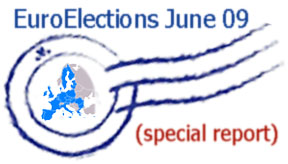
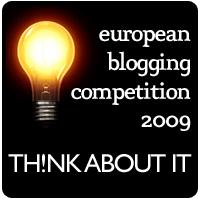


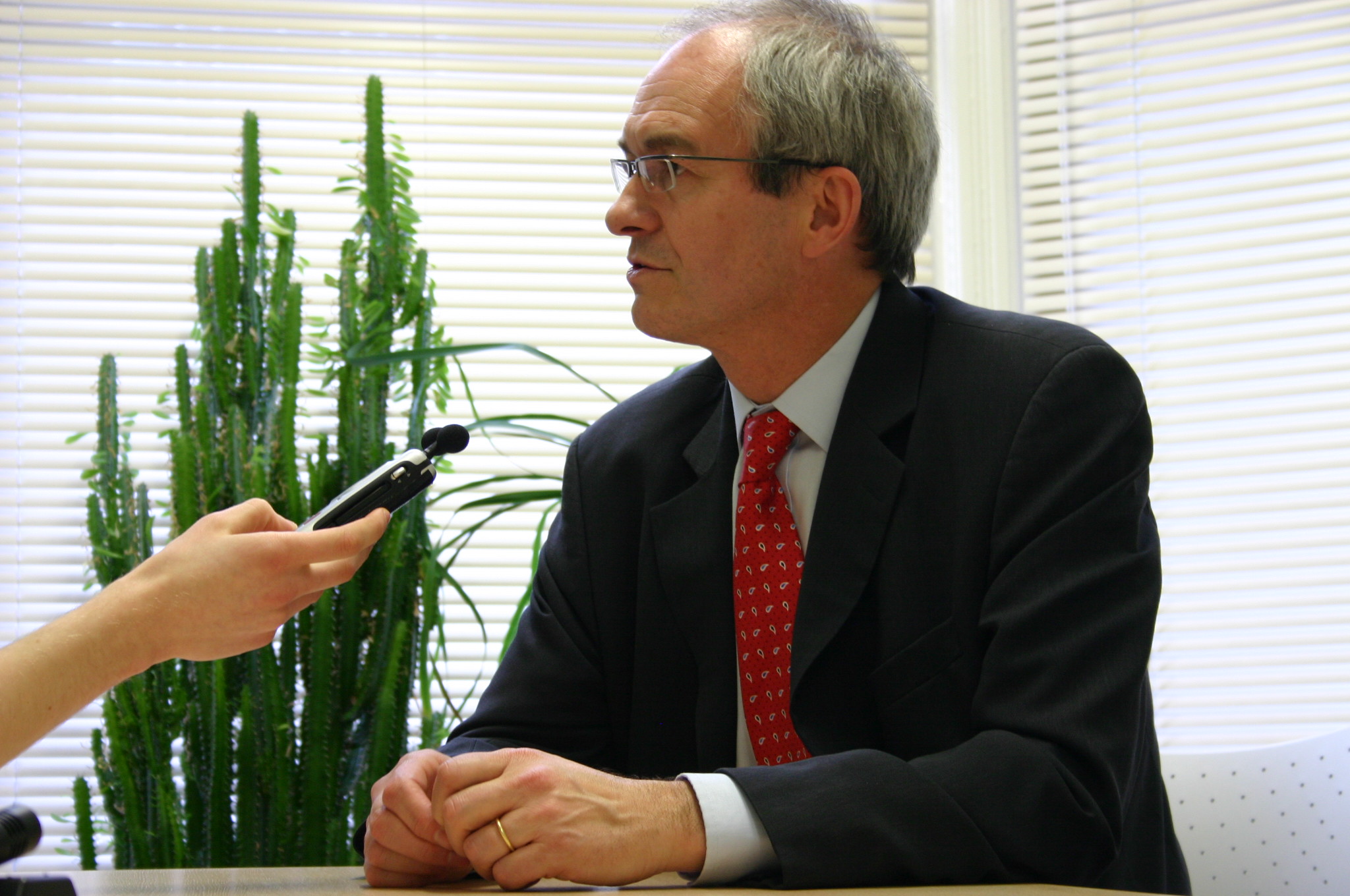
Recent Comments